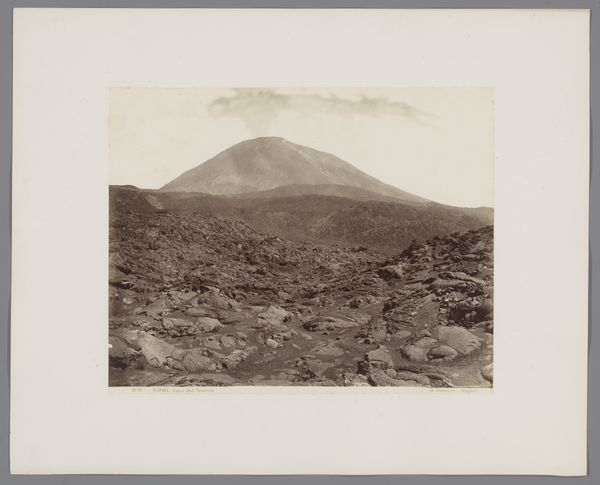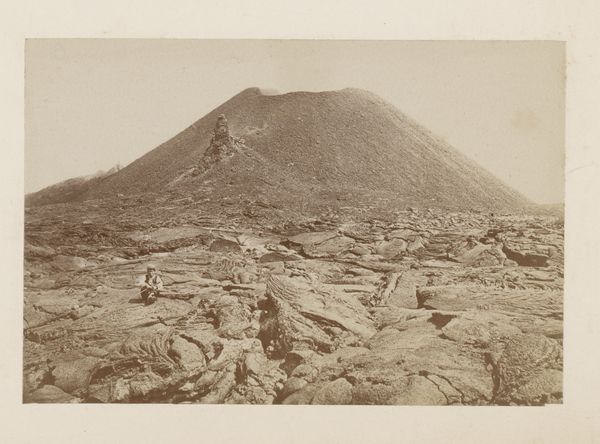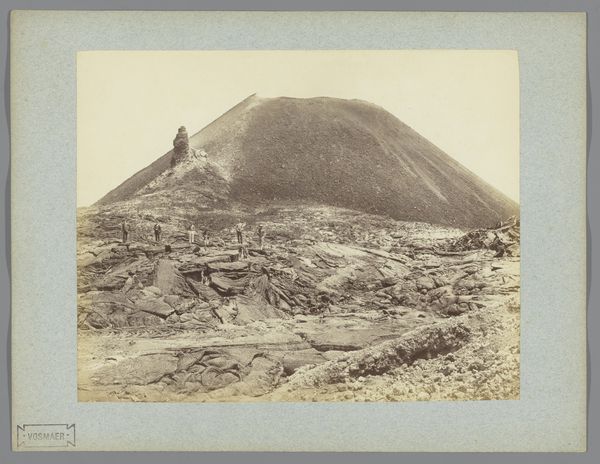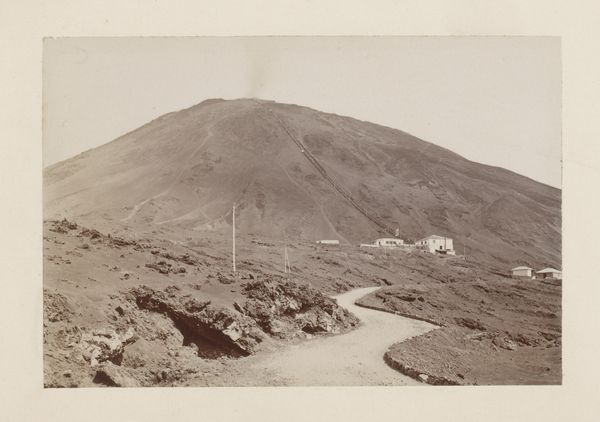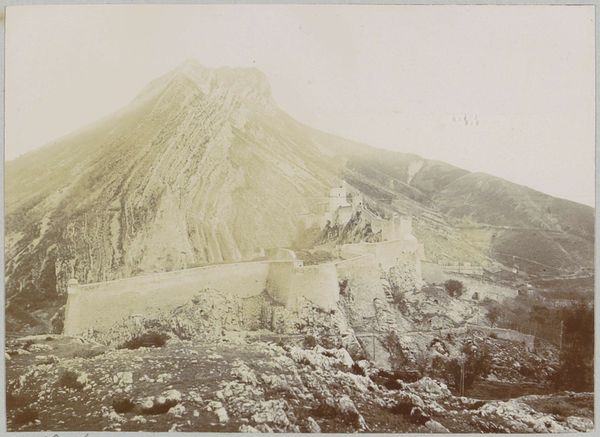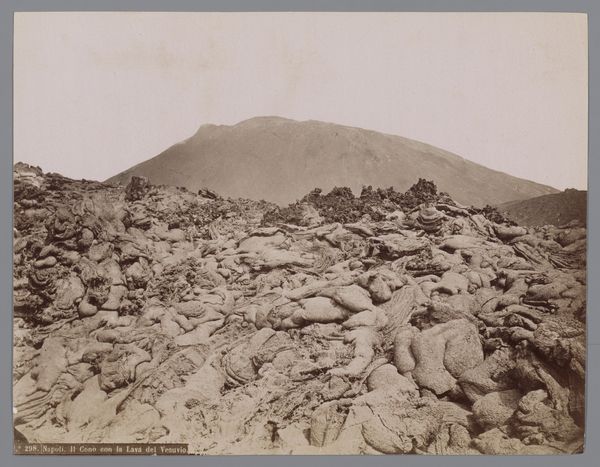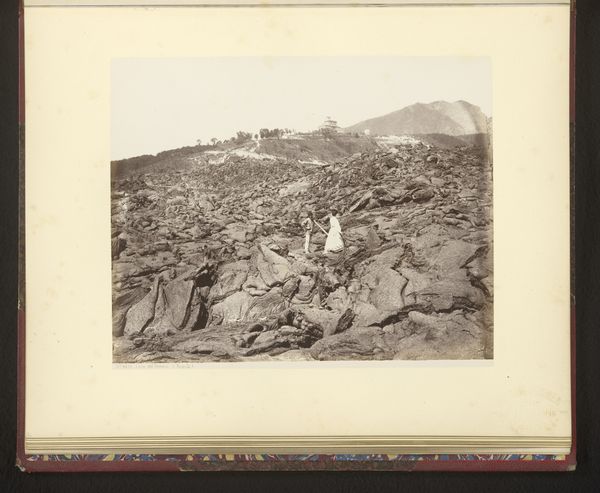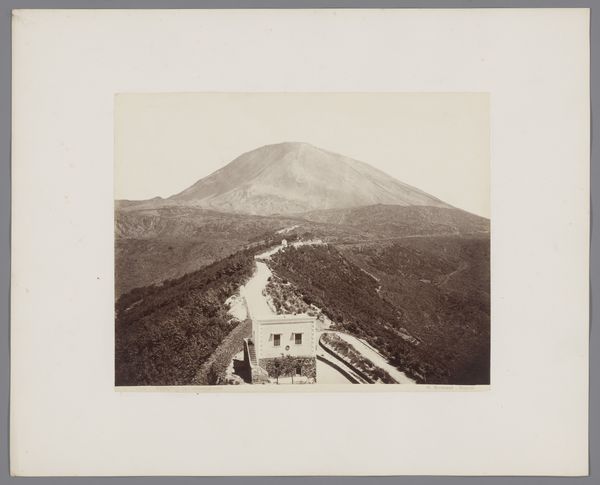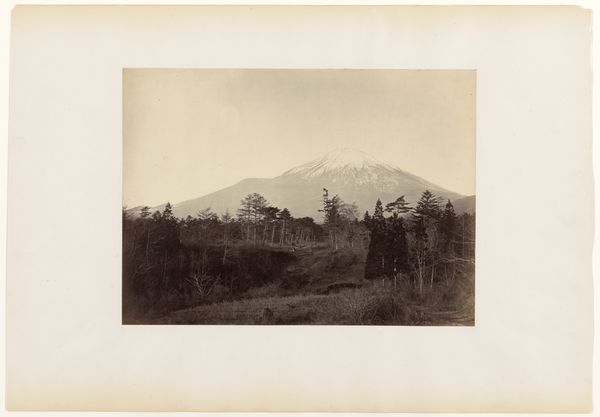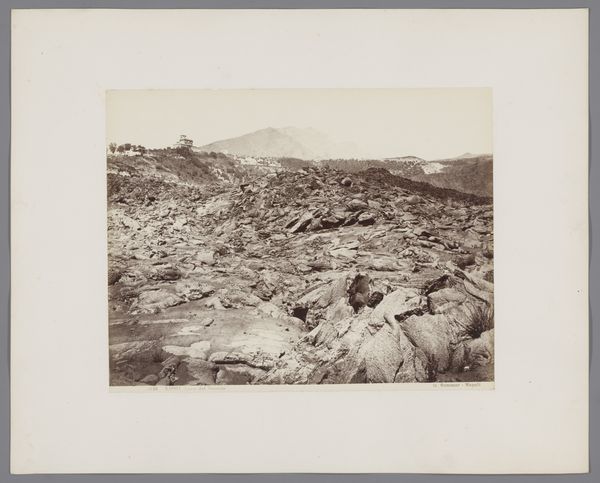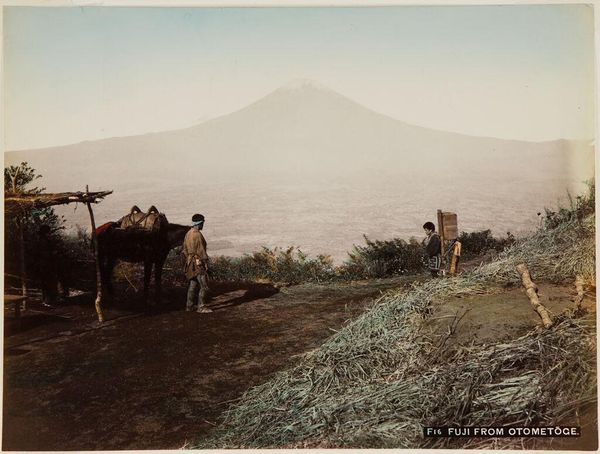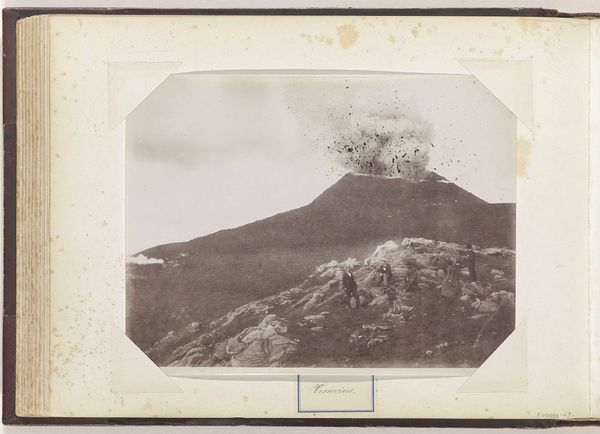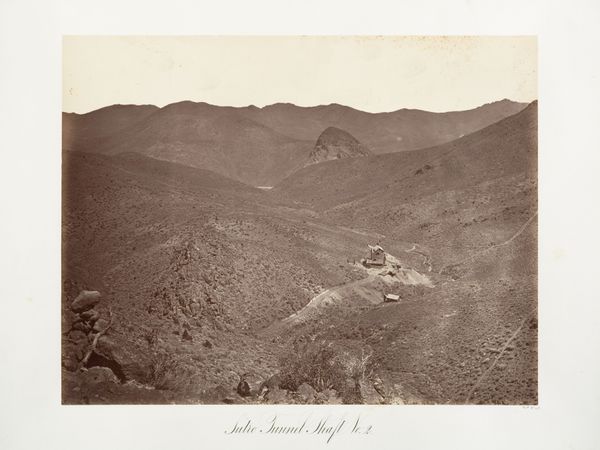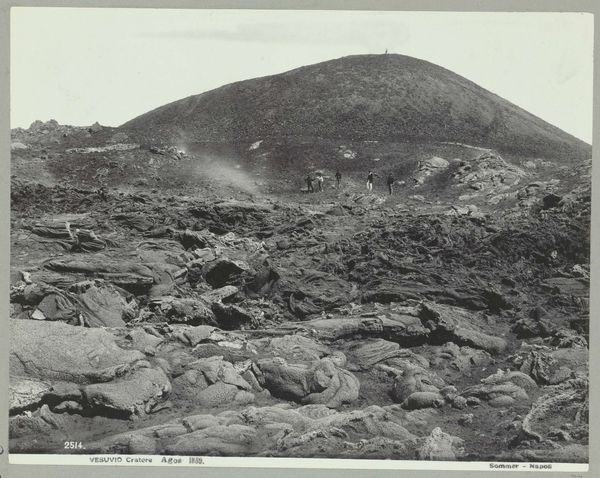
albumen-print, photography, albumen-print
#
albumen-print
#
landscape
#
photography
#
albumen-print
Dimensions: 7 x 9 5/16 in. (17.78 x 23.65 cm) (image)
Copyright: Public Domain
Curator: Immediately striking is the monochrome vastness and desolation, which these figures seem to navigate with a mixture of defiance and submission. Editor: We're looking at "Lava del Vesuvio," an albumen print made sometime in the 19th or early 20th century, created by Giorgio Sommer. It’s currently housed here at the Minneapolis Institute of Art. The perspective makes Vesuvius feel immense, dwarfing everything below. Curator: Absolutely. That volcano, especially for viewers of that era, looms as both a literal and figurative presence. Vesuvius was ever present in the popular imagination and even more in Neapolitan visual culture. Editor: Volcanos have been, throughout history, symbols of both creation and destruction. We see lava – birth of new land – coexisting with an ever-present threat of devastating destruction. This creates tension that the people walking on the land express through how they look. Curator: What fascinates me is how these landscape photographs, beyond simply documenting geography, participate in the growth of mass tourism and the rise of Naples and Italy as premier destinations, especially for northern Europeans and Americans. It's interesting how early photography helps shape the narrative of 'must-see' places. Editor: Yes, photography certainly played an interesting role in documenting "sublime" nature, of both inviting visitors and creating a collective visual memory around that type of landmark. Looking closer, I see the staff these figures carry, likely tools for navigating this unforgiving terrain. The staff becomes a signifier here, marking that this is not an innocent walk, but a purposeful journey to experience the awe of the place, and perhaps feel alive against the backdrop of death. Curator: That's right. And considering this work is in our collection suggests the enduring appeal of such imagery, of experiencing grand historical and geological time within a single photographic frame. Editor: I’m left with an acute awareness of how humans try to carve out space for themselves, against the backdrop of powerful forces—of both nature and history. Curator: A powerful statement that this arresting print continues to deliver.
Comments
No comments
Be the first to comment and join the conversation on the ultimate creative platform.
